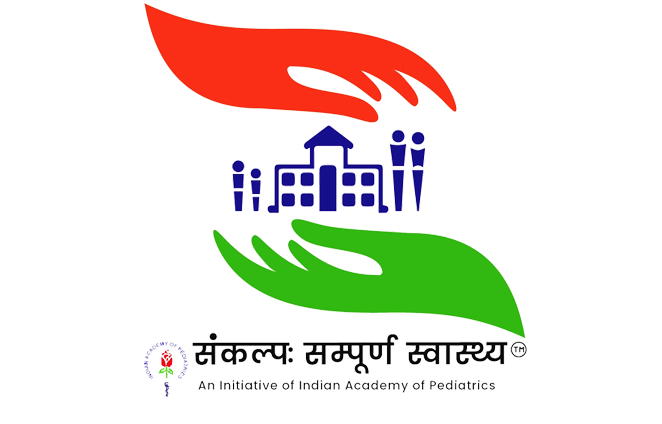Indian Academy of Pediatrics (IAP), a 60 year old national organisation (registered, nonprofit trust) of child specialist doctors in India. We are the largest representative body of child specialist doctors in India with more than 40,000 members with 31 state and 347 city/district branches. Expertise of clinicians and academicians across India, from private as well as public sector, is available to IAP, through which IAP has advised and partnered the Government of India as well as several state governments in many healthcare programs.
Over the past decade, globally, prevention of NCDs have emerged as one of the topmost health priorities of healthcare agencies and governments. Low and middle income (LMI) countries are affected disproportionately, and of all age groups, children and adolescents face the greatest damage from NCDs, over their lifespan.
Key findings of the the recently published (2019), Comprehensive National Nutrition Survey (CNNS) (2016-2018) National Report of Govt. of India, UNICEF and Population Council:
- In India, there is a growing risk of NCDs among children aged 5-9 years, and adolescents aged 10-19 years.
- One in ten school-aged children and adolescents, have been found to be pre-diabetic.
- One in hundred have been found to be diabetic.
- 3% of school-age children and 4% of adolescents, had high total cholesterol and high low- density lipoprotein (LDL).
- 26% of school-age children and 28% of adolescents had low high-density lipoprotein (HDL).
- 34% of school-age children, and 16% of adolescents, had high serum triglycerides.
- 7% of school-age children, and adolescents were at-risk for chronic kidney disease.
- 5% of adolescents were found to have high blood pressure.
Many of the NCDs detected in adults have had their origins in childhood. Gaps between the current prevalence, and current spending on NCDs, are so huge that they appear almost impossible to fill in the near future, particularly for resource-limited, LMI countries like ours. Innovations in healthcare, for development of high focus, high impact, cost-effective strategies for NCD prevention, is the only solution.
Since its inception, IAP has been at the forefront in all issues affecting the health and well-being of children of India. So it is only logical that now in the diamond jubilee year of its formation, IAP takes the lead in building and implementing sustainable solutions to safeguard the health of Indian children and adolescents, from the rapidly advancing global pandemic of NCDs. Due to its history, mandate, membership strength, chapters and branches across the country, partnerships with governments and NGOs, reach in the private sector and availability of expertise of the best minds from the public as well as private sector, IAP is very well positioned to innovate, develop and manage a sustainable system for holistic health, with high focus on prevention of NCDs in India.
It is well known that an ounce of prevention is worth a pound of cure. Also, preventive strategies applied in childhood, and through school-based programs are more likely to succeed, and NCD prevention through healthy habits cultivated starting in early childhood and across the life span, can be very cost effective. Therefore, through the vision of Dr. Upendra Kinjawadekar, IAP President 2023, in the diamond jubilee year of the formation of IAP, the Core Team of SSS, with valuable contributions from invited expert authors and reviewers, developed SSS as the flagship program to fulfil the perineal commitment of IAP to meet the most pressing need of the children and adolescents of India, and to complement the efforts of the Government of India and state governments in this regard.
VISION AND MISSION
Holistic health for all children of India and their families, with high focus on cultivation of healthy lifestyles starting early in childhood and sustainable across the life span, by integrating preventive healthcare with formal education, follow up support and catalysing positive changes in ecosystems.
AIMS
- Empowerment of schools for health promotion of students through a standardised protocol.
- Enhancement of the physical, mental, emotional and social well-being of learners through inculcation of the main principles of healthy lifestyle in all students beginning from an early age, with special focus on primary prevention and early detection of Noncommunicable diseases.
OBJECTIVES
- Capacity-building of schools to effectively disseminate the most important messages with respect to healthy lifestyle, to all their students on a sustainable basis, through training, use of a standardised toolkit and ongoing support.
- Training of school teachers to enable them to disseminate key messages effectively to all students of their respective schools.
- Training of Pediatricians to guide and support school teachers to run the modules in accordance with the program guidelines.
- To conduct a series of workshops to sensitise all students in respect of some of the main components of healthy lifestyle, through key messages about each component, and to train older children in some skills useful for the same.
- To build tools to enable children and parents to easily execute on a sustainable basis, their main learnings from the program.
- To develop the system for standards-driven school health programs and accreditation of schools by IAP-NCDPA, to introduce the Health Promoting School (HPS) concept to schools, and to encourage and facilitate them to join the HPS accreditation program of IAP-NCDPA.
